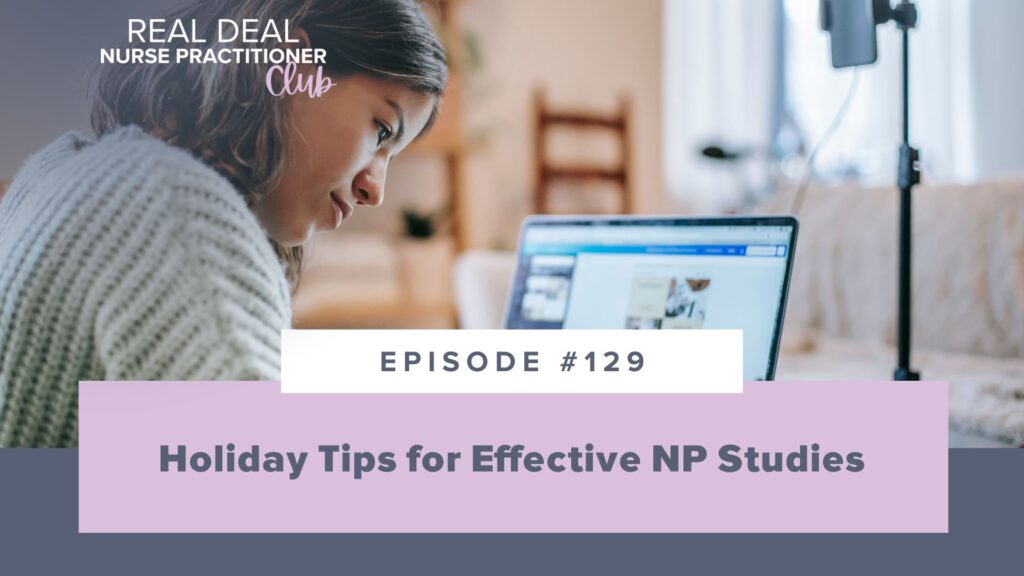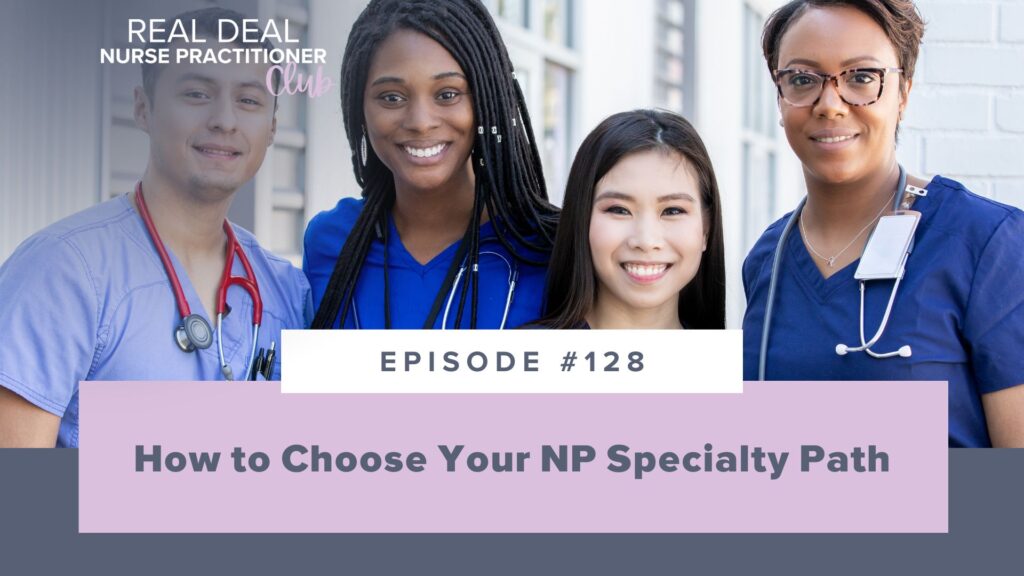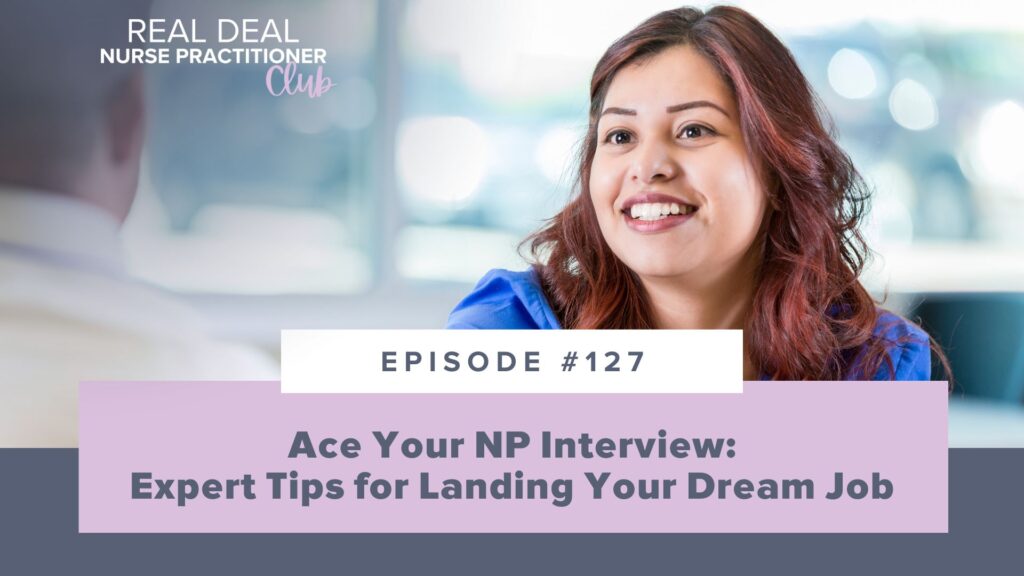Ep #80: How to Supercharge Your Studying in 2023 [NP STUDENT]
- by
- Feb 01, 2023
- Podcasts
![SMNP Blog - Ep #80: How to Supercharge Your Studying in 2023 [NP STUDENT]](https://blog.npreviews.com/wp-content/uploads/2023/04/becoming-stress-free-nurse-practitioner-080-yt.jpg)
One of our top commitments here at NP Reviews is to update our courses whenever new guidelines come out. In addition to that, we also do a total revamp every year to freshen up our library of videos and add in lots of new bonus content.
In that vein, this week’s episode is all about helping you supercharge your studying in 2023. Questions around the topic of studying are some we see time and time again, so get strapped in to hear tips, tricks, and all the good stuff you need to go into 2023 ready to become a real-deal Nurse Practitioner.
Listen in to discover everything you need to know to go into 2023 with a great study plan. You’ll hear the revamped features in our course and how the material in there will set you up for success, and answers to some of the most common questions about time spent studying, study schedules, and how many practice questions to get in before you test.
If you’re looking for support, no matter what phase of your nurse practitioner journey you’re currently in, I have communities available for both students and new nurse practitioners. In these communities, we work to uplift one another and grow this profession together every day, so click here to check them out!
What You Will Discover:
- How much time to spend studying every day.
- Why we recommend avoiding long-haul study sessions.
- Tips for creating your study schedule.
- The number of practice questions we recommend doing before you sit for your exam.
- How to wrap up your studying before you test.
Featured on the Show:
- If you’re looking for extra support, I have communities available for both students and new nurse practitioners. Click here if you’re a student, and click here if you’re a new NP!
Full Episode Transcript:
Welcome to Becoming a Stress-Free Nurse Practitioner, a show for new NPs and students that want to pass their board exam the first time and make that transition from RN to NP as seamless as possible. I’m your host Sarah Michelle. Now, let’s dive into today’s episode.
Hello, hello, everyone. Welcome to 2023, although, at this point, it is already February. So it’s been 2023 for a little bit now. But this is the first podcast we are recording in 2023. So still, Happy New Year to all. I hope everybody had really rejuvenating holidays and you’re ready to take on this year.
I personally really love the beginning of the year because it just brings on a fresh start. And something really exciting internally at SMNP Reviews, of course, revamp. We always try to update our courses whenever new guidelines come out. But every year, we also do a total revamp to freshen up the videos, add content that our learners frequently ask about, and add bonus content like the hundreds of practice questions we added to every single course within this latest revamp.
It is truly so exciting, and we love to see how much students benefit from the revamp. So in that same thought, this episode is going to be all about how to supercharge your studying for 2023. I’m talking tips and tricks, how to best set up your studying process, and all the good stuff you need to go into your 2023, ready to become a real-deal NP.
One of the most common questions we get asked is how much time to spend studying every day. Time and time again, we see that students are most successful when they break up studying into manageable time chunks. What a manageable chunk of time is can vary from student to student. But overall, we would not recommend more than one to two hours of continuous study time in one sitting.
There have actually been studies done on this, which is kind of silly to think about, studies done on studying. But they really did show that short bursts of uninterrupted studying were extremely effective when it came to long-term recall. This is because, after too much sitting and studying, the brain really does need a break. There comes a point where information is not being stored any longer, so the study time is not effective.
We always want our students to have manageable, effective study time. One tool that I personally really like, even for my work tasks, is a timer. They actually sell productivity timers, which are pretty cute. But I am personally a fan of just using the timer on my phone or my laptop to set time limits. This can be so helpful.
Set a timer to go off every 30 minutes or an hour at most. Sit down, study a good amount through some videos, and maybe some practice questions for that time. And then take a little walk or a brain break at that 30-minute mark before setting back in for another 30 minutes or so. This is just one way to break up studying, but it really does seem to have a positive outcome on student success.
The main takeaway from this is to not overdo it. Sitting down for a grueling six or eight-hour study session is not only ineffective, it can quickly lead to study burnout, which in and of itself can be a huge hurdle to overcome. The really nice thing about the SMNP Reviews course revamp is that our team was very mindful to be sure the videos were short enough so that students could sit down in manageable timeframes to watch them.
We went through and broke up large topics, like cardiac, into topic-specific videos in the in-depth courses. So there’s a short video on hypertension, there’s one on medications for hypertension, there’s one on hyperlipidemia, et cetera. So this topic breakup has already gotten such great feedback from our students, and it is a great way to avoid those long-haul study sessions.
Another question that pops up in our Facebook group and just throughout messages with students all the time is how to make a study schedule. If you’ve been around for a while, you know that our live study group comes with a day-by-day study schedule, which is, in my opinion, one of the best parts about the live study group.
It is a schedule designed by our NP success team that has proven again and again to be effective. But if the timeline of the live study group doesn’t fit your personal schedule, we do have some tips for making a personal day-by-day study schedule.
So first off, like I said before, I would block out one hour or so of time for studying, ideally every single day, to keep it short and sweet. Ideally, I like students to plan for about four to six weeks of studying. This allows for some days completely off, days to catch up if life suddenly gets in the way, and some wiggle room if AANP or ANCC is slow to give out that approval to test.
I also personally find that most people are the most motivated for studying at the very beginning of their study time. So with this in mind, I recommend making a day-by-day calendar, topic by topic, starting with the topics that you find most difficult. And this is because when that motivation is high, those topics will seem more bearable.
For me, this would mean putting something like psych mental health or cardiology topics first because I personally find that those are two of my toughest topics. But whatever you find to be your tough topics, put them first. And I like to physically write things down. It makes me feel most accomplished when I can check items off, so I use a good old-fashioned pen and paper calendar to make my study schedule.
I sat down and looked at my work schedule, my graduation date, any appointments I had coming up, travel, and other obligations, and I planned around those as well as some planned rest days because we all need rest. It is all about balance, friends.
Some days, my hour of studying was in the morning. Other days, it was in the afternoon or the evening. But I’ve really truly planned this out and made it a must-do every day. By holding myself accountable to this schedule, not only did I get through my studying in an efficient manner, I really retained what I was studying because, after all, what is the point of studying if you’re not retaining it, right?
So here’s an example of how I would break up day by day with the courses because they’re already broken down by topic for you. So that takes out that work. So day one, maybe I start with cardiac, and I do the hypertension videos from the diagnosis course, and then the pharmacology course, and then I would follow with the cardiac videos in the crash course.
And this part is crucial. I would also do some practice questions, somewhere around 20 to 30, related to that body system. And that’s usually a sweet spot. On day two, maybe I got into the rest of the cardiac videos that are a bit shorter and then rewatched the crash course again as a great summary and a great way to quiz myself.
Then, at the end of each week, I personally blocked out a day to review everything I learned that week to make sure it was staying fresh in my brain and putting the pieces together. I am a super visual learner, so I would review some quick flashcards, or I liked to practice writing out mnemonics or facts I struggled with more, which in turn would help me recall information like murmurs and blood pressure guidelines.
Whatever recall strategies work best for you, I would absolutely build them into your weekly study plan. It’s an easy way to catch any areas where you need a little more time as well. You can say, oh, I don’t actually feel super confident with blood pressure guidelines, or whatever it may be. And then you can go back to that video and that study material while it’s still fresh.
I also had an hour-long drive to clinicals in my last semester, so I took advantage of this time and used it to re-listen to courses while I drove. As far as wrapping up studying in the week or so before you actually test, I personally like to use the crash course again at the very end of studying as it’s a great way to wrap up. They’re quick to get through, and they help pull everything together.
Another nice feature of the course revamp is there are now built-in quizzes for every topic in every course. So that’s a great way to get in some practice questions as you go through that material day by day. And like I mentioned before, please, please, please build in those study breaks. Take a day here and there off to step away from the material, take a brain break, and do something you enjoy. I promise you, this will only aid you in your study journey and really help avoid burnout.
My last and perhaps most important piece of studying advice to weave into your 2023 study plan is, again, even more, practice questions. You will hear me talk about the importance of practice questions until my face turns blue, y’all. But I am serious. They are truly the key to success. Knowing the content is one thing, and it is also important, but these exams and real-life practice want you to apply that knowledge.
It is not enough to just know it. You have to know how to recall the information and then apply it. I believe so strongly in this that we, as a team, added hundreds of questions built-in and entire videos about breaking down review questions to the courses. That is how serious I am about applying all of that knowledge. It is the key piece of studying that I think students sometimes tend to overlook.
We recommend trying to get in at least 1,000 practice questions before your exam, which I know sounds like a lot at first. But if you break up your studying day by day and do 20 to 30 questions and then add in a few full-length exams, like you’ve also probably heard us talk about, you will easily be at over 1,000 practice questions before you know it.
The exams like to test students on basic knowledge, so think just pure recall, like cranial nerves or pediatric milestones, and then application of that knowledge. So maybe a question about anticipatory guidance where you need to know proper pediatric milestones and then provide guidance to a parent in the question.
This is why it is so, so important to not only understand and memorize basic information but also be able to critically think through and apply the information to questions. This application is also critical for real-life practice as an NP because we know that patients present in all sorts of ways, and we really need to be able to use our knowledge to best serve them.
So do be extra sure to schedule those practice questions. And do not, please do not forget to do several full-length practice exams before your big day. You want to practice the timing, the mental fatigue, and the anxiety that can all pop up well before you’re in a high-stakes environment. Your future self will absolutely thank you.
So, to wrap it up, I just want to hit upon the key points I talked about so that you can go into 2023 with a great study plan in place. I want you to think about making a study schedule, having a carved-out set small chunk of time daily to get that studying in, and absolutely make a plan for how you’re going to fit in practice questions.
Of course, there were all of the key pieces we kept in mind when designing the course revamp, and even more so, the live study group program. So if you need any help at all, this is a great place to start.
And before I sign off, I do want to leave you with one of my favorite quotes by Martin Luther King Jr., and that is, “Faith is taking the first step, even when you don’t see the whole staircase.” So even if it seems so far off and so much work to pass your exam and become a real deal NP, have faith that you can and will. Set that plan and get to it.
As always, our entire team is rooting for you. And we cannot wait to see how many new NPs we welcome in this year. Until next time.
As an extra bonus, friends, if you’re looking for support no matter what phase of your nurse practitioner journey that you’re currently in, I have communities available for both students and new nurse practitioners. In these communities, we work to uplift one another and grow this profession together every single day. Links to join will be included for you in the show notes.
Thanks for listening to Becoming a Stress-Free Nurse Practitioner. If you want more information about the different types of support we offer to students and new NPs, visit https://www.npreviews.com/resources. See you next week.
Enjoy the Show?
- Don’t miss an episode: follow the podcast on Spotify, Apple Podcasts, Stitcher, or RSS.
- Leave a review in Apple Podcasts.
Search the Blog
Join our Facebook Group!
Get FREE support and encouragement from thousands of FNP/AGPCNP students and our NP Support team.
Learn More3 Study Hacks to Conquer Your NP Exam!
Download these tips that have helped thousands of students pass their NP board exams.
Download NowInstitutional Partnerships
Are you a faculty member and would like to bring Sarah Michelle’s resources to your school? Email us at nursinggroups@blueprintprep.com for special institutional pricing or click on the link below to learn more.
Learn MoreGroup Discounts
Are you a student and have 10 or more classmates interested in purchasing Sarah Michelle’s courses? Email us at nursinggroups@blueprintprep.com for special pricing.




